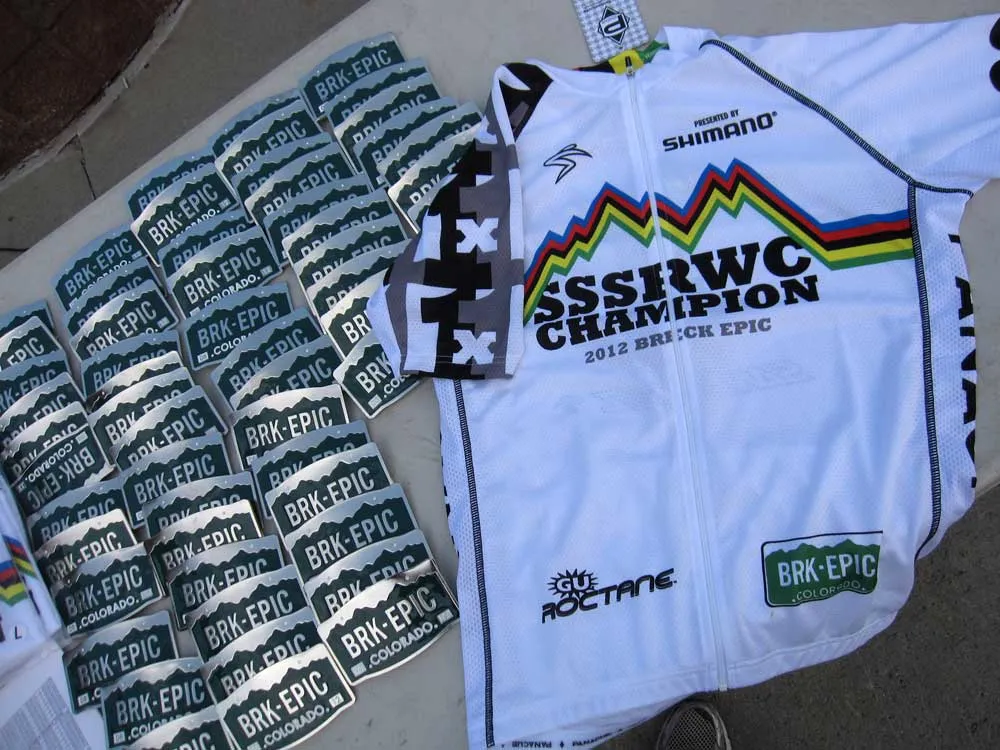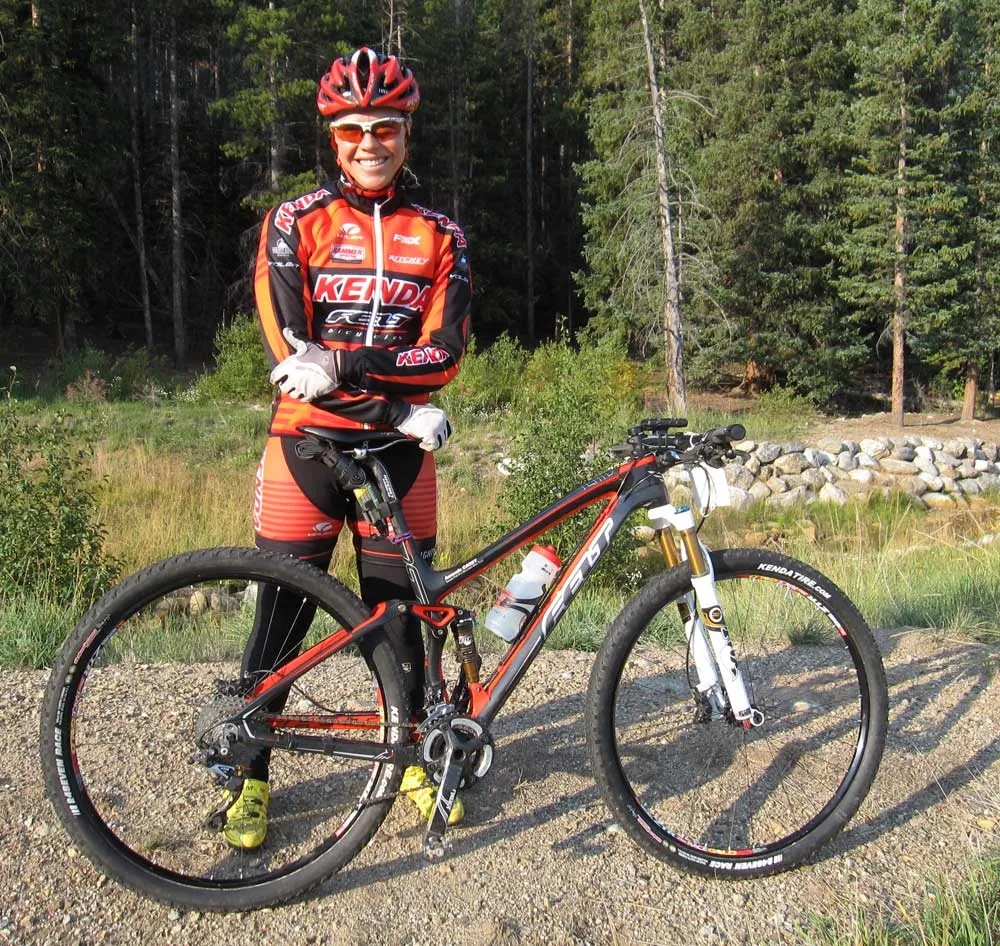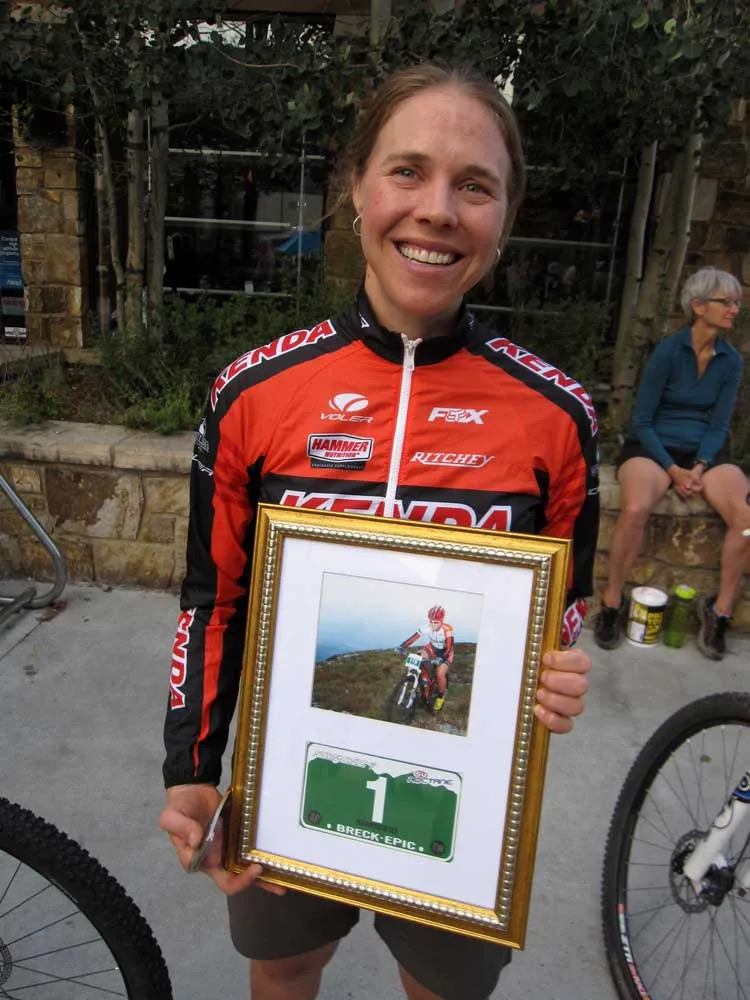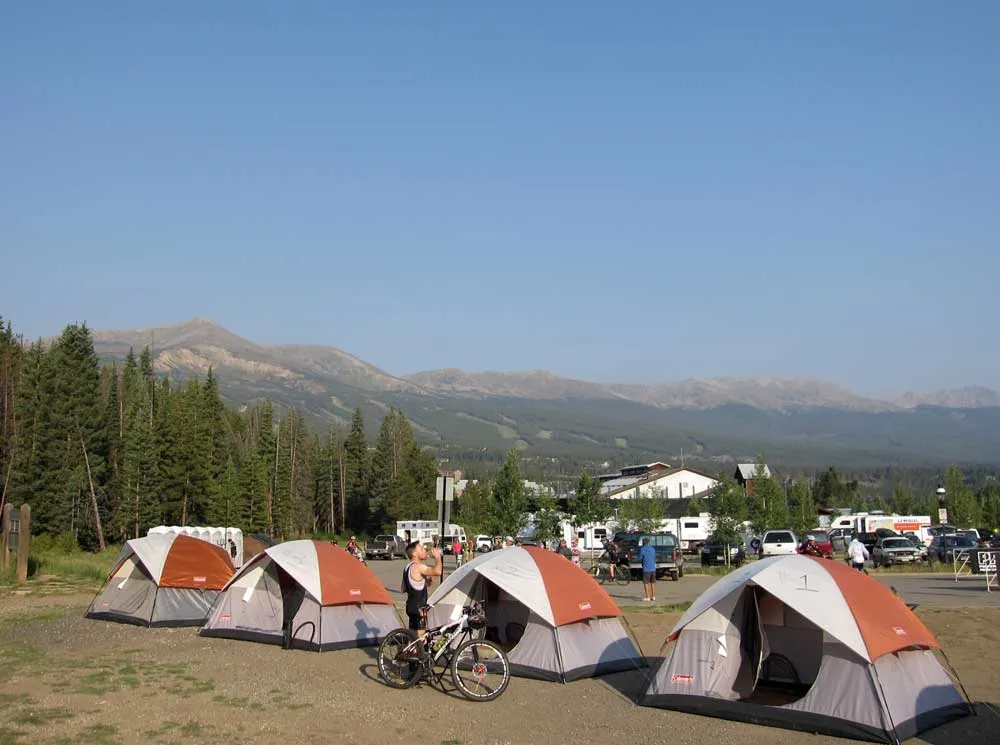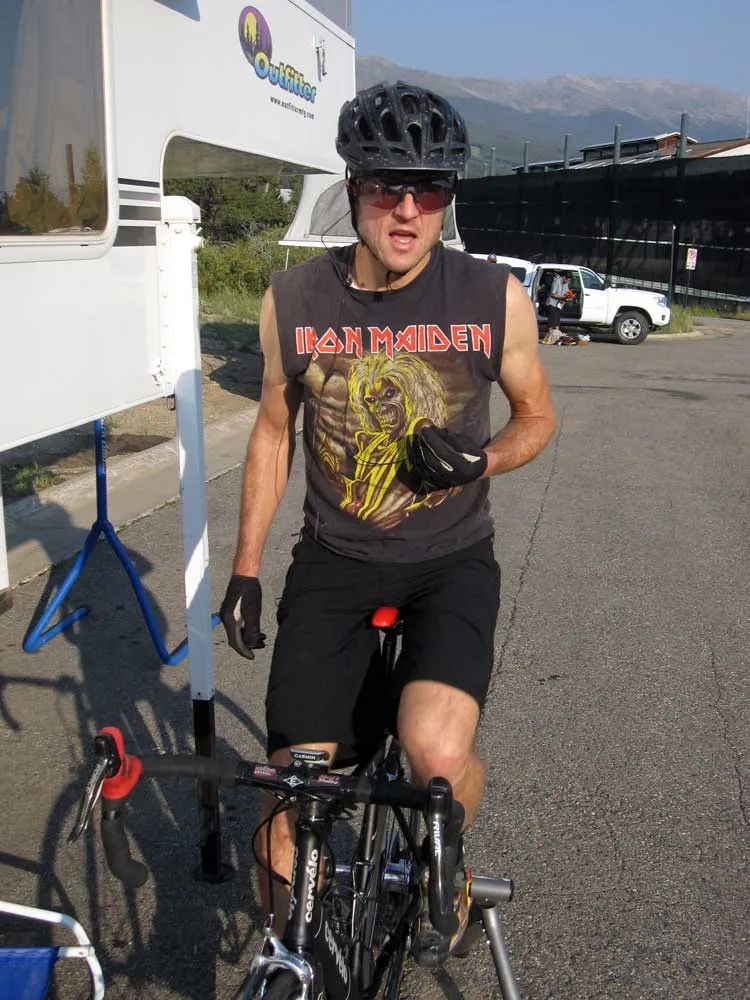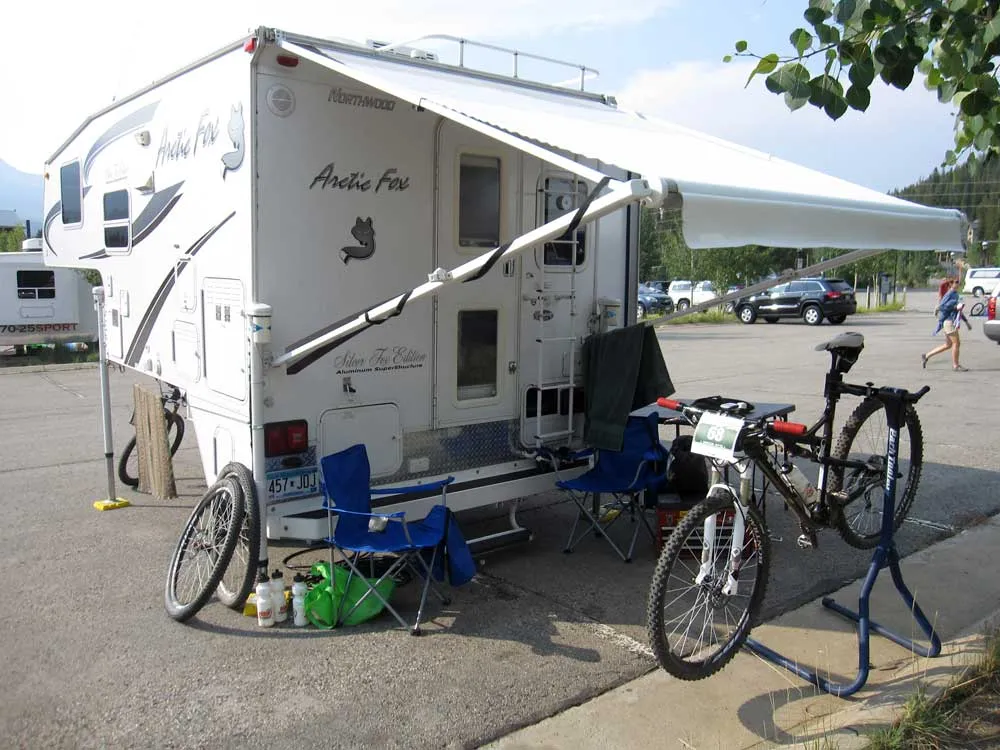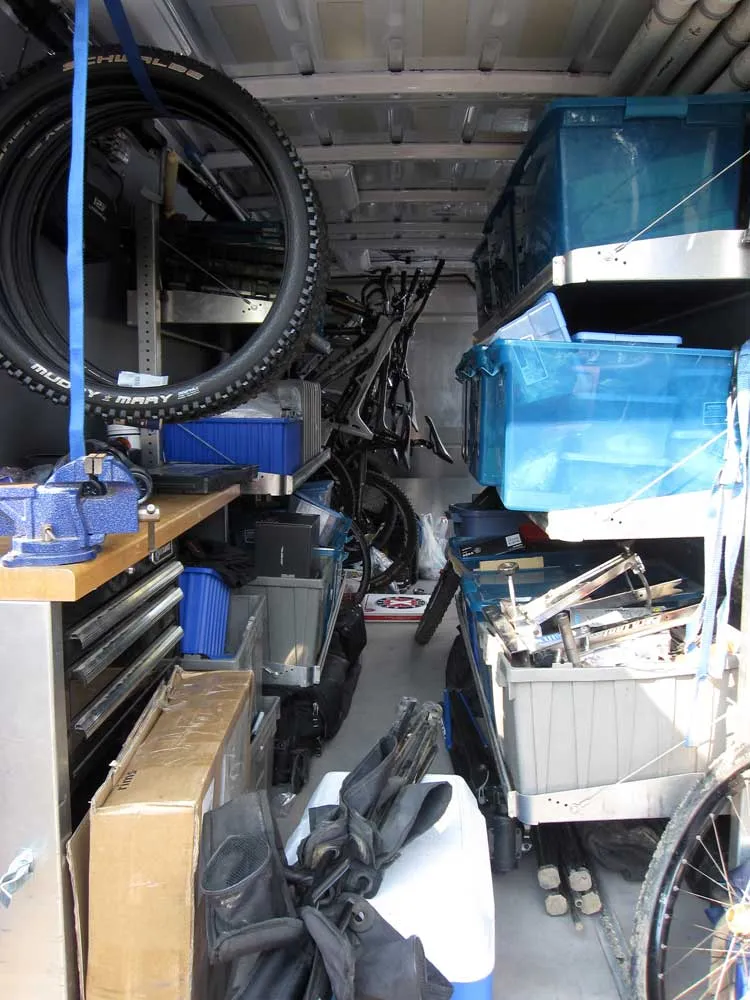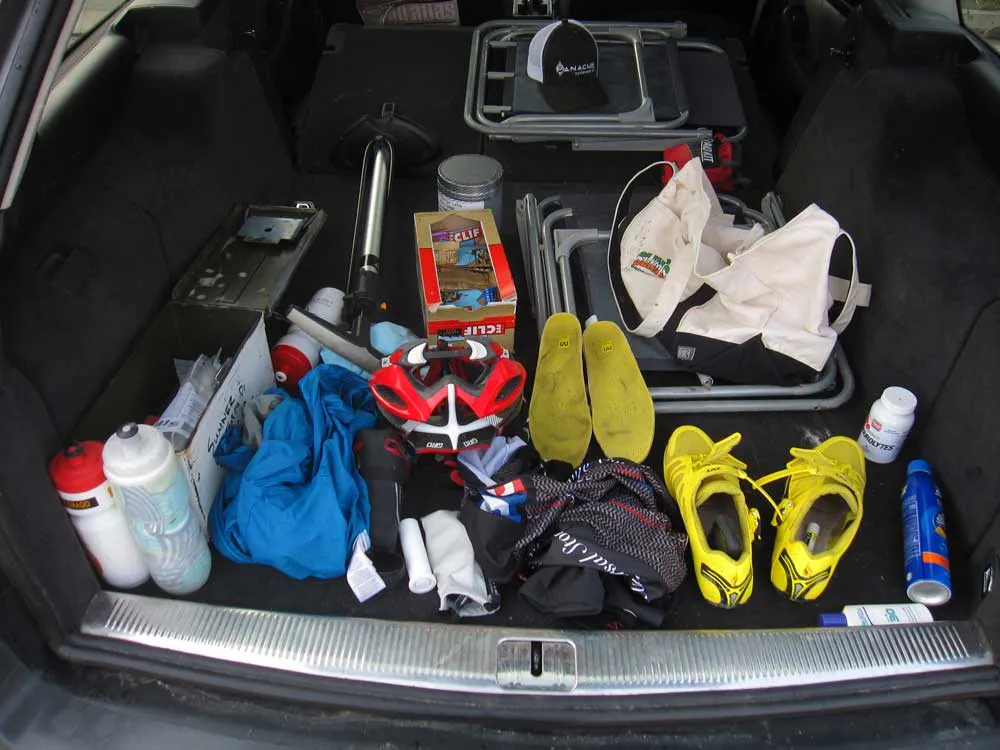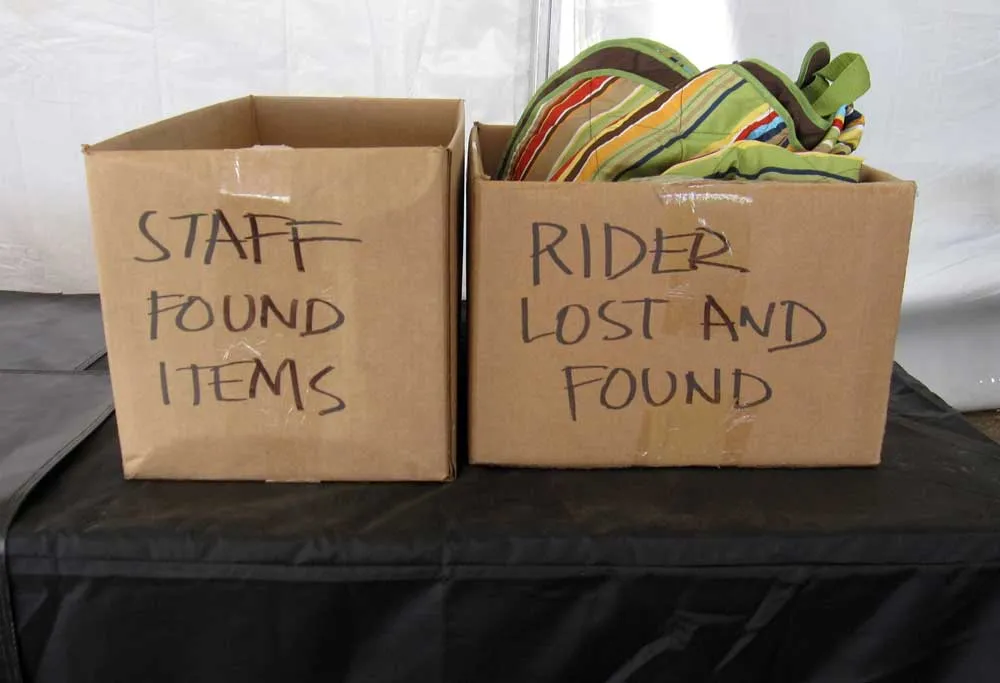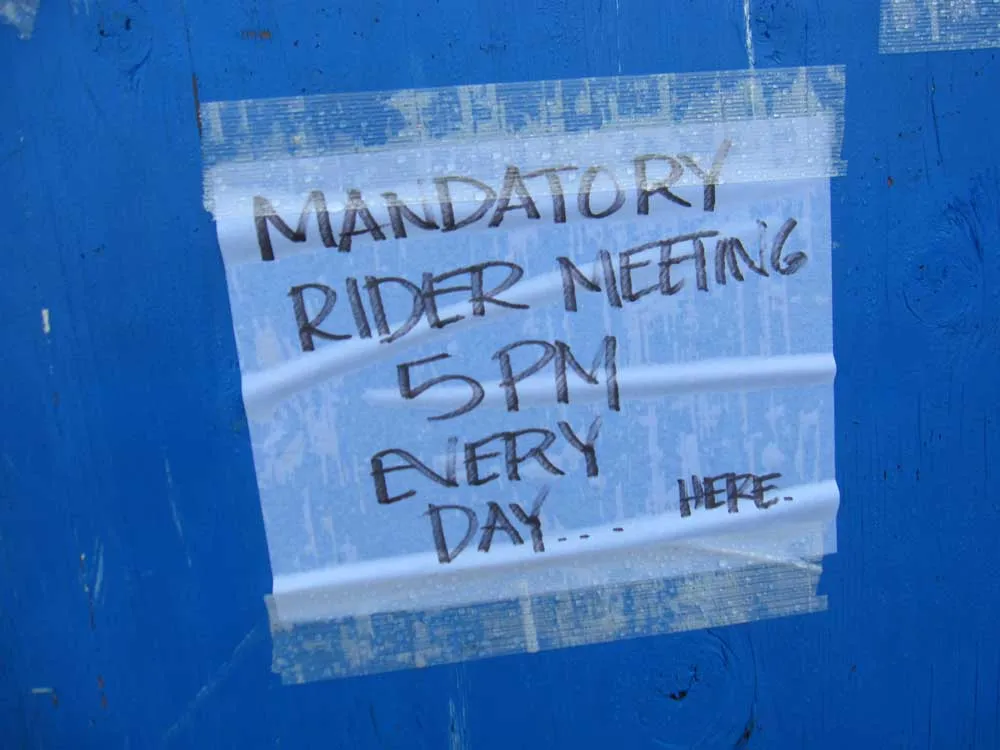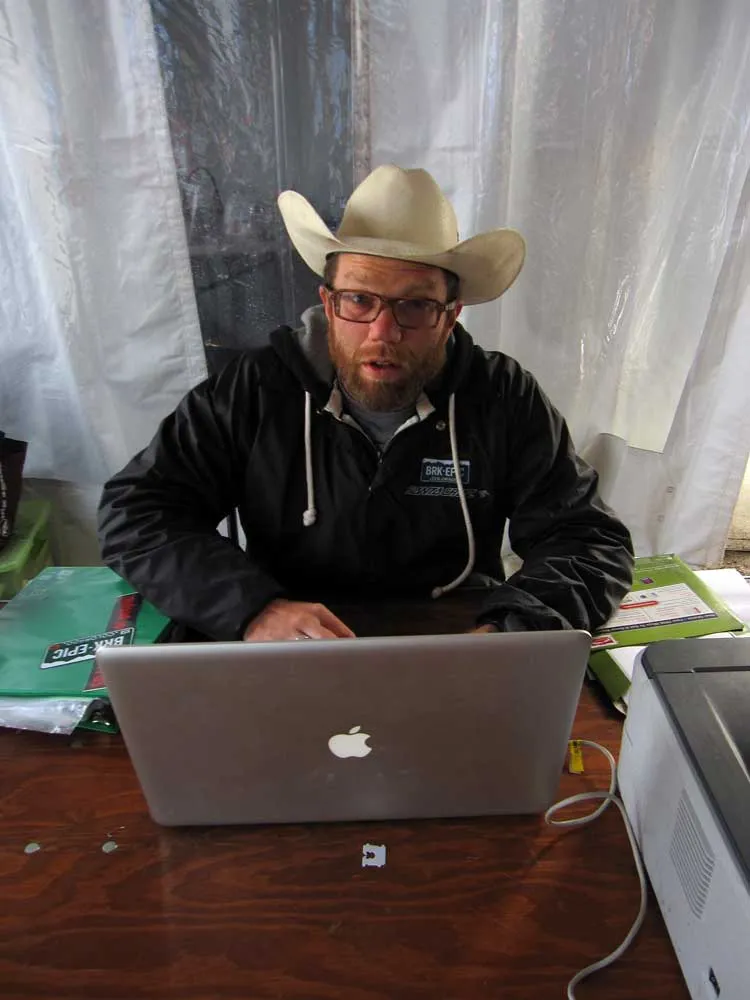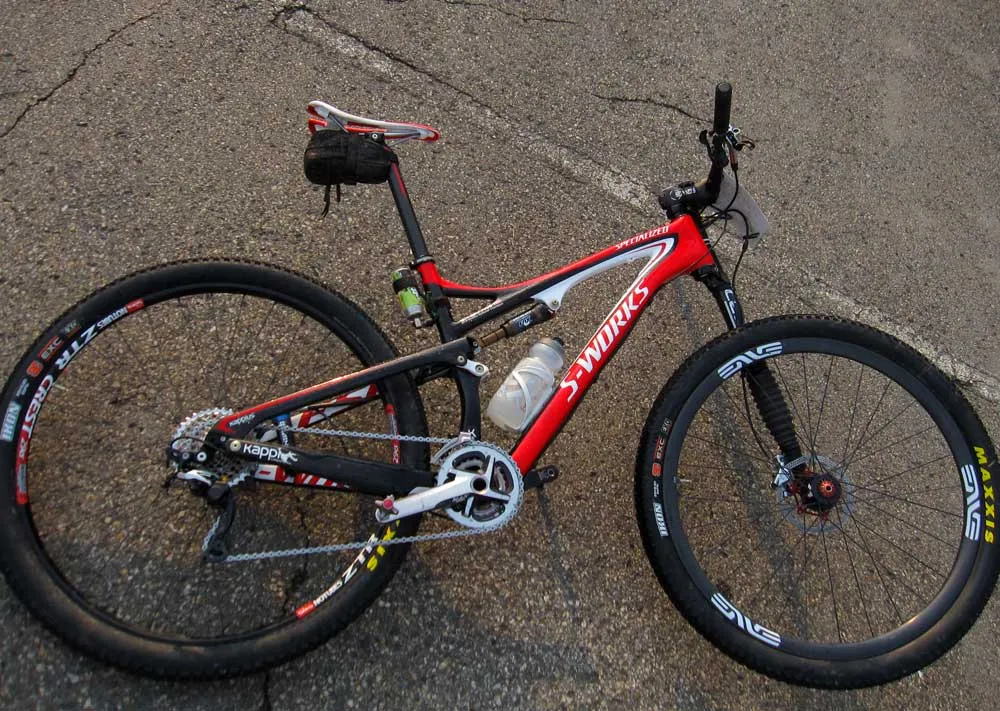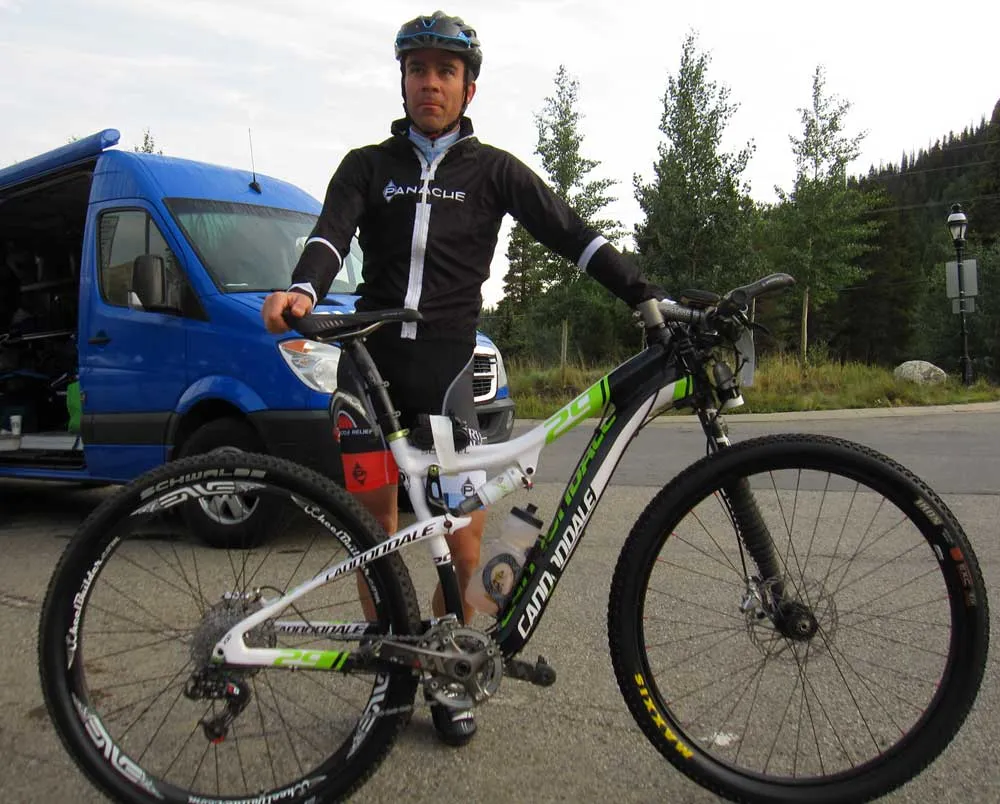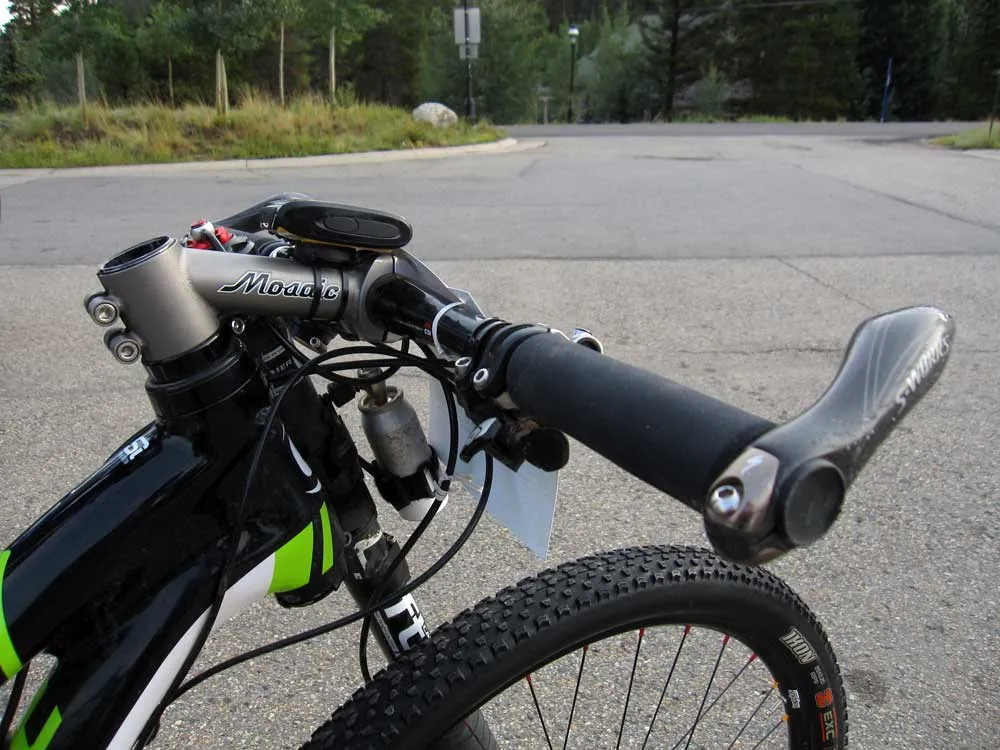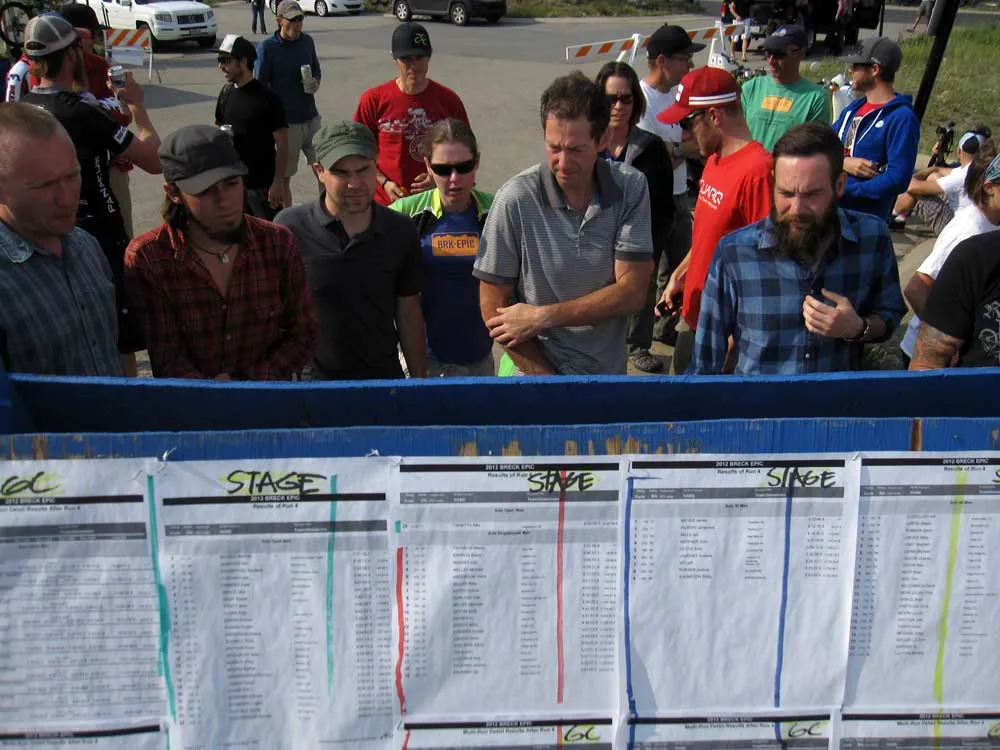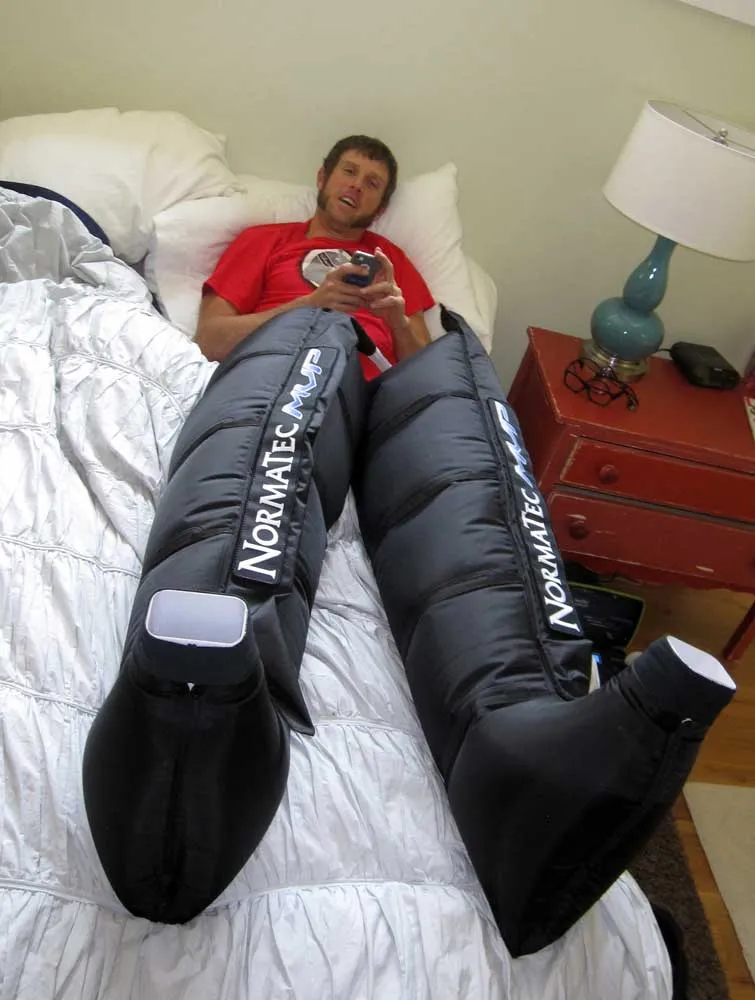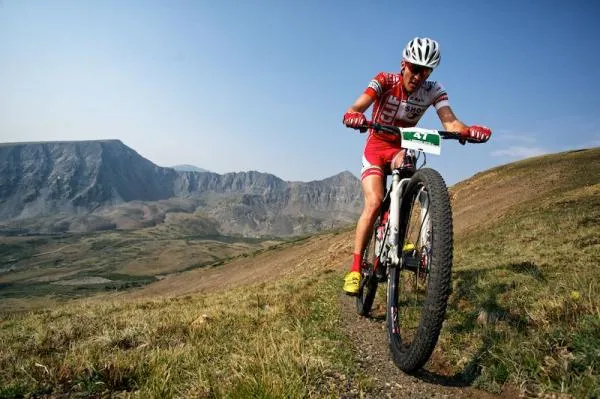The recently completed 6-day Breck Epic is not the most technical, most grueling, longest, or hardest mountain bike stage race in the world. But if you’re looking for a blend of great trails, a racer-friendly cloverleaf format, a laid-back vibe, and a bonanza of spectacular Rocky Mountain scenery, insert the Breck Epic high on your fat tire bucket list.
If you’re coming from sea level, buckle up. Host town Breckenridge, Colorado, sits at 9,600 feet. And during your six days of racing (or three, if you choose the shorter format), you’ll spend extended time above 11,000 feet, with several forays above 12,000 feet.
Here’s more of what you need to know before signing up for the 2013 Breck Epic, August 11-16.
CHOOSE YOUR BIKE WISELY
Before selecting a bike, define your goals. If you want to be competitive at the front of the men’s open race, you’re best bet will be a hardtail or an ultra-light, short-travel, full-suspension 29er that climbs like a dream.
Yes, there is plenty of rowdy, rocky, rooty descending where extra squish will pay dividends. But as any bike racer knows, races are almost always won going uphill, and the 2012 Breck Epic (according to my Garmin data) had an average of 5,333 feet of climbing per day. Most of this grunting was done on either smooth singletrack track or fire roads, both places where efficiency, not suspension, is paramount.
On the other hand, if your primary goal is a good time and a finisher’s belt buckle, forget the hardtail. Bring along a short-travel trail bike (you don’t need anything more than 5 inches of travel), and get ready to rip some of Colorado’s sweetest singletrack. Every stage includes extended trail time, and all of it is grin-inducing good.
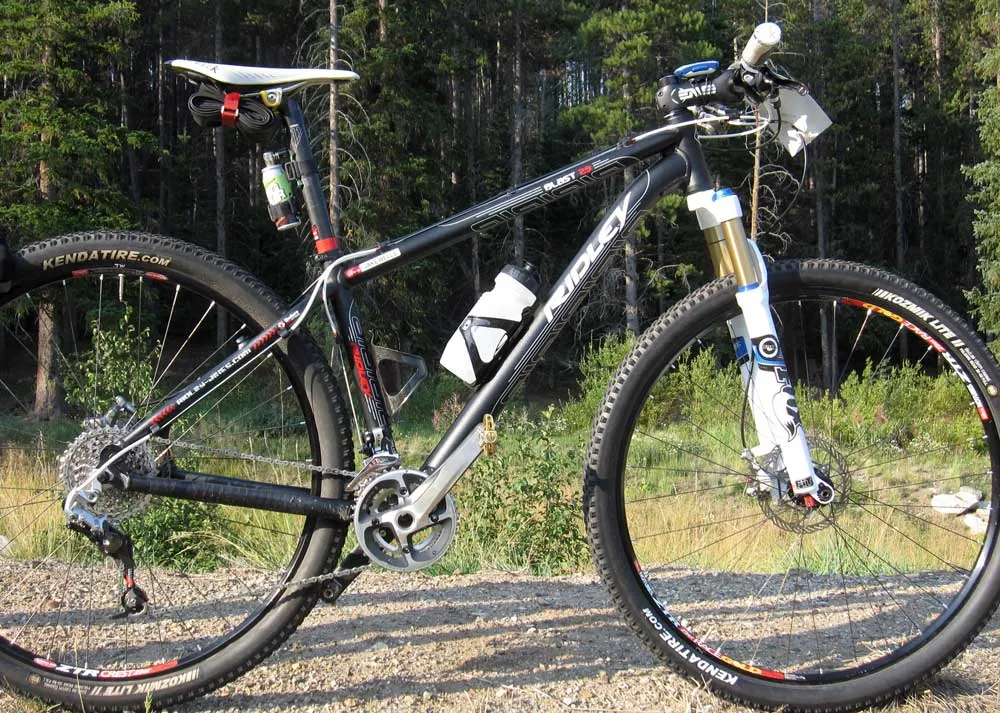
Jake Wells choose a 29er hardtail, as he was racing for the win. Many others choose full-suspension rigs to enjoy the ride
EMBRACE THE CLOVERLEAF
Unlike most of its point-to-point race brethren, the Breck Epic utilizes a cloverleaf format, with all stages starting and finishing in Breckenridge, Colorado. Exact sites vary from day to day, but you’re never more than a couple minutes spin from race HQ and the big adjacent parking lot. That means you get to sleep in the same place each night, be it tent, RV, hotel, condo, or your buddy’s couch.
After having done a handful of point-to-point events, I can't emphasize enough how nice it is not to pack, unpack, and repack a duffel bag every 24 hours. Sure, you miss out on some of the adventure offered by other events, which connect oceans or span mountain chains. But Breckenridge is a great place to spend a week, and the extra down time each day is pretty darn nice.
BE A MOUNTAIN BIKER
The Breck Epic isn’t as technically hard as the kingpin of trail challenge, the BC Bike Race. But that doesn’t mean the trails are easy. Most of the singletrack is fast and flowing, but also expect to encounter loose, steep, rocky sections, and some nasty sustained root barrages.
No, you don’t need to be Hans Rey to get from start to finish. But if you come to the race with sharpened technical skills, you’ll have a lot more fun – and go a lot faster, too.
While you’re thinking like a mountain biker, make sure to use tubeless tires, bring an extra set of brake pads, and know how to do at least basic trail-side maintenance. Things will go wrong. Take it from your author, who ran into a rear derailleur problem during stage 2 that couldn’t immediately be solved, and likely ended up costing yours truly a place on the old guy’s podium.
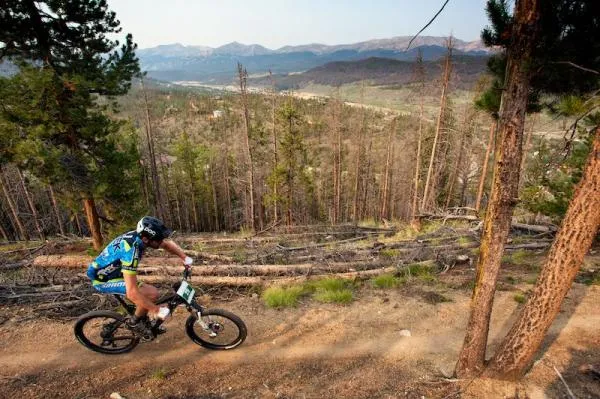
Go with the flow, on the trail and with the race format
DON’T BE TYPE A
If the Breck Epic has a soft spot, it’s with some of its finite details. Each evening, we were told that the ensuing stage would be X miles long, with X thousand feet of climbing, and that the aid stations would be at mile X and Mile Y.
Well… those numbers were usually off. It was never by a lot (a mile here, a mile there). But if you’re the type that freaks out the moment everything isn’t exactly as you thought it was going to be, best choose a different race.
However, if you appreciate the fact that this is backcountry mountain bike racing, and if you realize that how you deal with adversity is part of the greater test, then you’ll be right at home.
DON’T EXPECT A CAKEWALK
Breck Epic is not a death march like TransAlp, TransPyr, or Cape Epic, which all take most mid-pack riders in excess of 50 hours to complete. But the days in the Colorado high country are by no means easy.
According to my Garmin data, the six-day event included 217 miles of saddle time (longest day, 43 miles; shortest, 26) and 32,000 feet of climbing (biggest single day gain, 6,600 feet; least gain, 3,500).
Total ride times for the week ranged from 18 hours for overall race winner Ben Sonntag, to about 34 hours for the slowest riders. The fastest woman (Amanda Carey) finished in 22.5 hours. Your author was near the front of the mid-packers at 24.5 hours. Each day’s stage typically took between 2.5 and 5 hours. And even the slowest riders were never on course more than 7 hours at a time.
Remember that recovery at high altitude is a lot different than recovery closer to sea level. Sleeping can be tough, and your body simply doesn’t snap back day after day like it would lower down. That’s why pacing is key. Go out too hard the first couple days, and you’ll almost certainly start to break down later in the week as massive fatigue sets in.
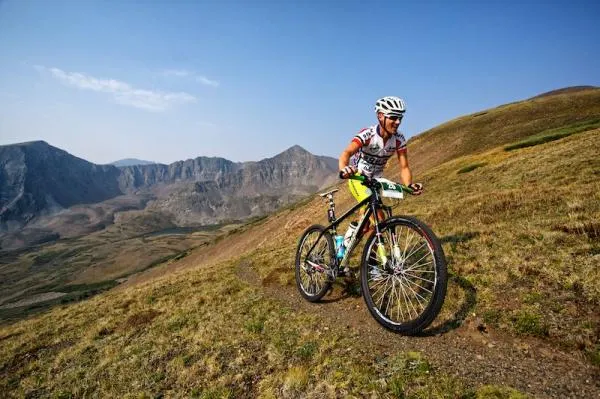
Welcome to 12,000 feet, where sometimes walking is faster than riding
UTILIZE THE DROP BAGS
The Breck Epic is the first MTB stage race I’ve done that provides drop bag services at the aid stations. Each morning you fill your two grocery store sized bags with whatever you might need for the day, and each day they are waiting for you at the two respective aid stations. (On days with three aid stations, your aid 1 bag is transported to aid 3 after you roll through the first pit stop.)
I filled my bags with a spare tire, extra tubes, a few tools, lube, foul weather clothes, and some food. Thankfully, aside for one bad weather day when I needed to dig out a pair of warm gloves, I only used the bags as a place to drop unneeded gear as I got closer to that day’s finish. Still, the peace of mind was huge.
Access to these bags also made it easy to forgo riding with a hydration pack. As long as you could carry a couple water bottles, a few tools, a rain jacket, and a spare tube, there was no need for the extra cargo-carrier weight strapped to your back.
AWESOME AID STATIONS
It’s also important to mention that the aid stations were well stocked with food and drink if you didn’t feel like digging into a personal bag. In addition, there was usually a mechanic on hand if you needed assistance. In fact, the aid stations were among the Breck Epic’s most impressive elements.
As you rolled in, your on-bike number plate was matched to your numbered bag, and a volunteer would quickly fish your bag out of the pile and have it waiting in hand just in case.
Volunteers filled bottles, handed out gels and food, and even took trash you'd stuffed in your jersey. They were honestly the best, most useful aid stations I’ve ever encountered.
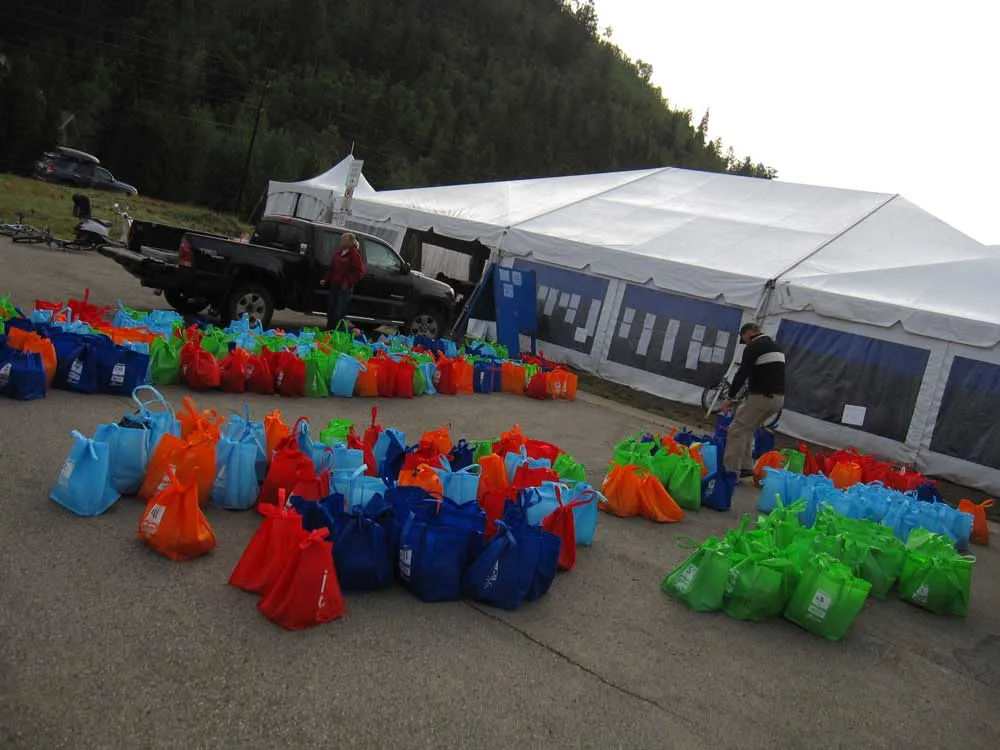
Two drop stations for your stuff, plus plentiful food and drink on course, meant you could race light
LEARN MORE
For more details, check out BreckEpic.com. Early bird registration for the 2013 event opened this week. Base price for a 6-day entry is $650.

